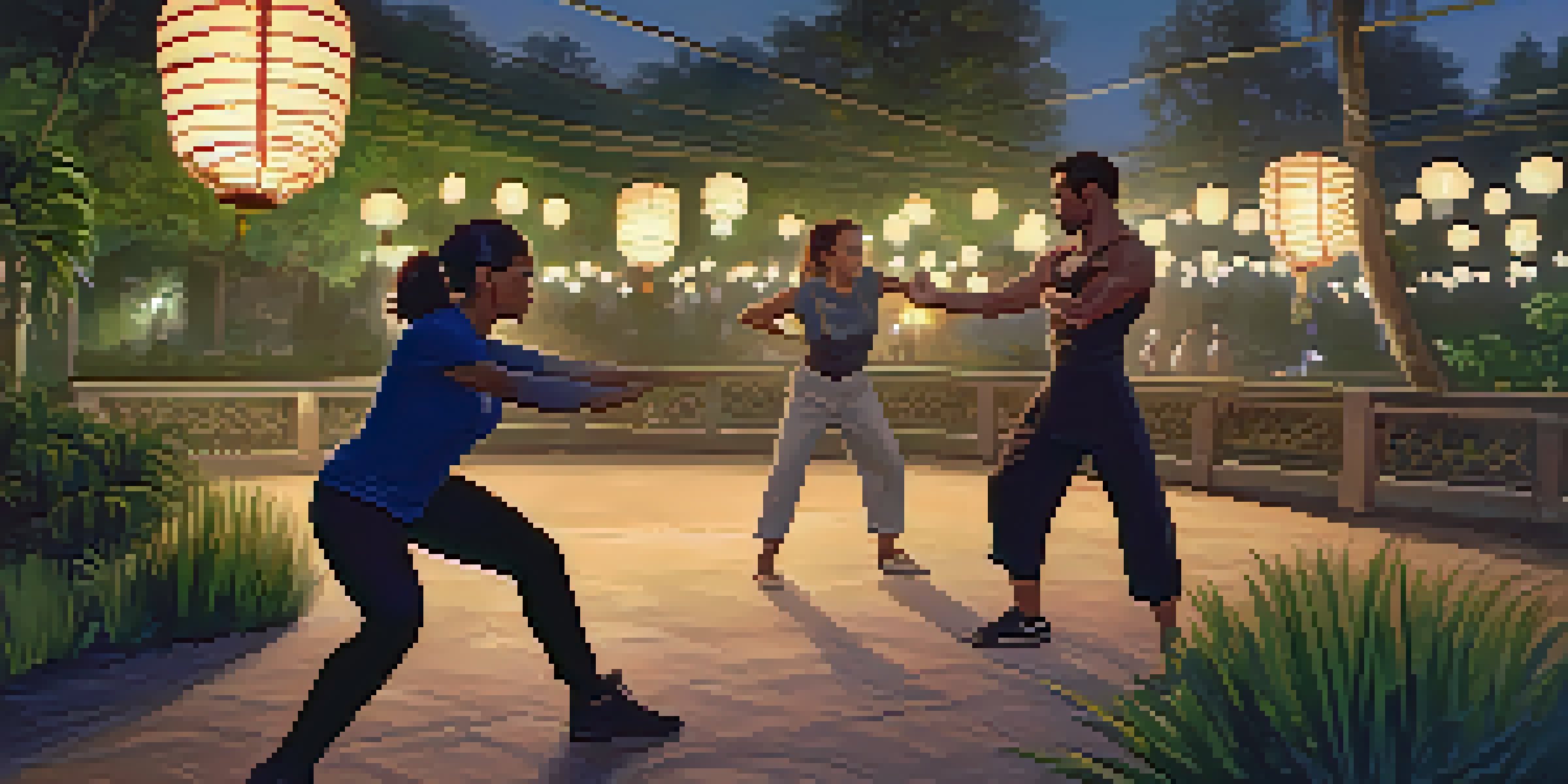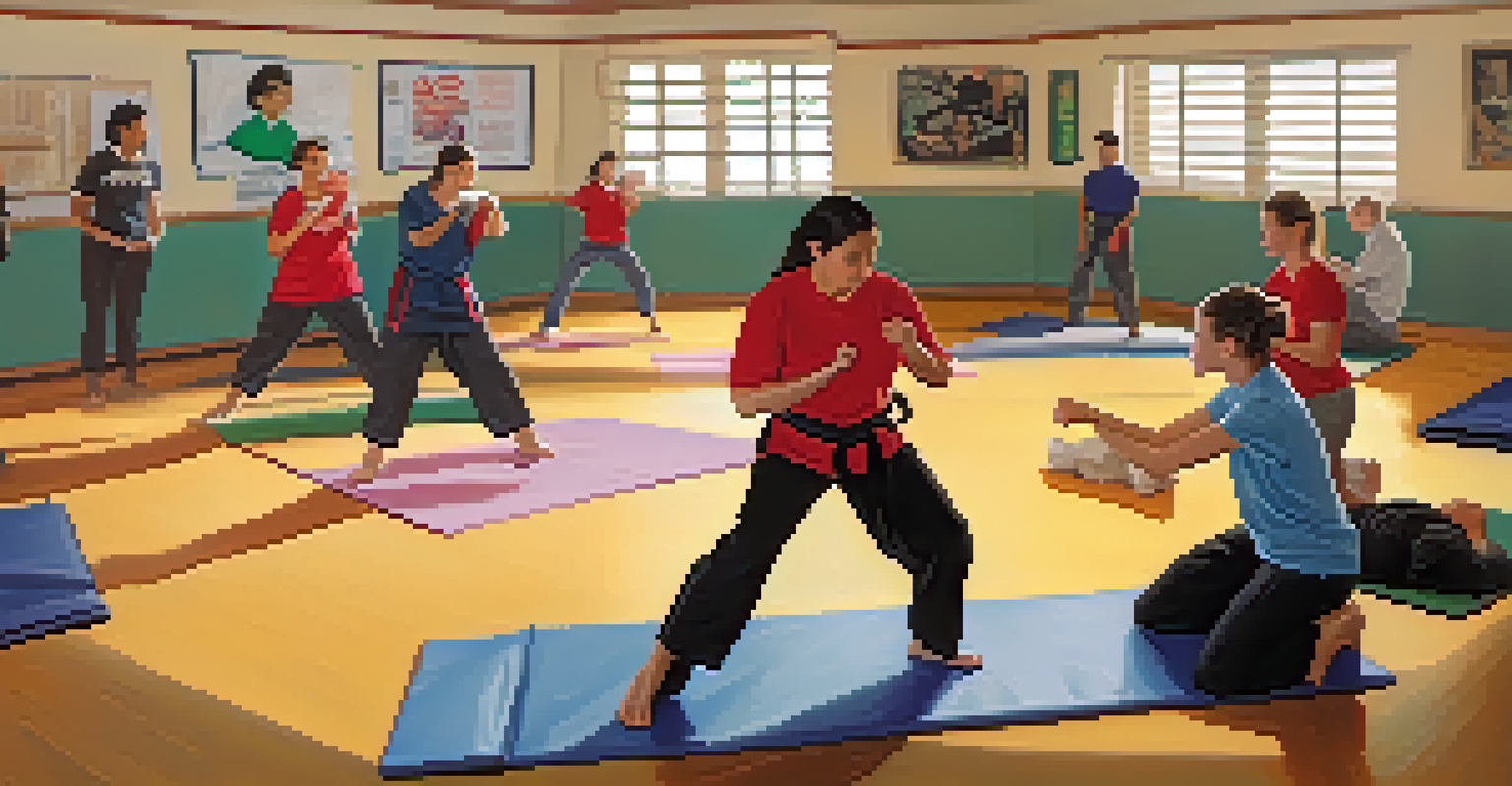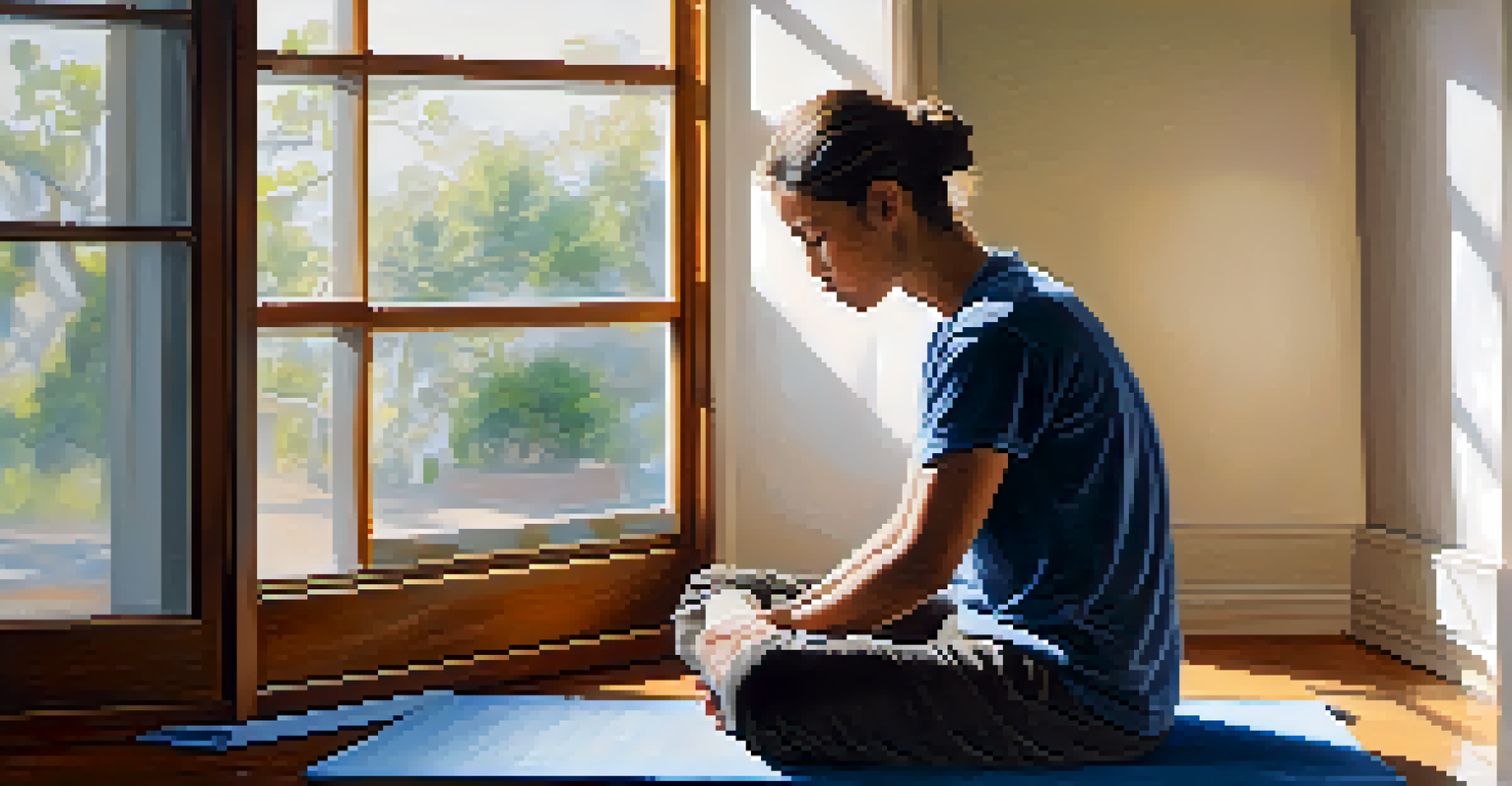Understanding the Basics of Self Defense for Everyone

What is Self Defense and Why is it Important?
Self defense is the practice of protecting oneself from harm, utilizing various techniques and strategies. It's essential not only for physical safety but also for mental empowerment, as it builds confidence and awareness. Whether it's a physical altercation or a verbal confrontation, knowing how to respond can make a significant difference in your safety.
Self-defense is not just a set of techniques; it's a mindset that empowers you to face any challenge.
Many people think self defense is only for those who expect to encounter danger, but that's a misconception. Everyone can benefit from self defense training, whether you're walking home late at night or simply want to feel more secure in your daily life. It's about being prepared, rather than living in fear.
Understanding self defense also promotes a sense of community. When more individuals are educated about personal safety, it fosters a safer environment for everyone. This knowledge can be a valuable resource, not just for you, but for your friends and family as well.
The Principles of Self Defense: Awareness and Prevention
The first step in self defense is awareness. This means being conscious of your surroundings and noticing anything that seems out of the ordinary. For instance, if you’re walking in a quiet area and notice someone who seems to be following you, trust your instincts and take steps to avoid potential danger.

Prevention is another critical component of self defense. Educating yourself about safe practices, like avoiding poorly lit areas or not sharing personal information with strangers, can significantly reduce your risk of confrontation. It's all about being proactive rather than reactive.
Self Defense Empowers Everyone
Self defense training is essential for personal safety and confidence, benefiting everyone regardless of their circumstances.
By honing your awareness and preventive skills, you are already a step ahead in protecting yourself. These principles lay the groundwork for more advanced techniques you may choose to learn later on, making them a vital part of your self defense toolkit.
Basic Self Defense Techniques Everyone Should Know
While it might seem daunting, there are simple self defense techniques that anyone can learn. For example, a strong palm strike can be effective in creating space between you and an attacker. This technique is straightforward and can be practiced easily, making it accessible for everyone.
The best defense is a good offense. If you know how to defend yourself, you can approach life with confidence.
Another essential move is the escape maneuver. If someone grabs your wrist, twisting your body and pulling your arm back can help you break free. Practicing these techniques regularly can instill muscle memory, so you respond quickly if needed.
Remember, the goal of self defense is not to fight back, but to create an opportunity to escape. These fundamental techniques empower you to protect yourself without escalating a situation unnecessarily.
The Role of Confidence in Self Defense
Confidence plays a pivotal role in self defense. When you believe in your ability to protect yourself, you're less likely to become a target. Attackers often seek out individuals who appear vulnerable or unsure, so cultivating confidence can be a powerful deterrent.
One way to build confidence is through practice. Engaging in self defense classes not only teaches you techniques but also boosts your self-esteem as you become more skilled. Over time, you'll notice a shift in how you carry yourself and interact with others.
Awareness is Key to Safety
Being aware of your surroundings and practicing preventive measures significantly reduces the risk of confrontation.
Additionally, visualization can enhance your confidence. Imagine yourself successfully navigating a difficult situation; this mental rehearsal prepares you for real-life scenarios and reinforces your belief in your abilities.
Understanding Your Rights in Self Defense Situations
It's crucial to understand the legal aspects of self defense. Laws vary by location, but generally, you have the right to defend yourself if you face imminent harm. Knowing your rights can provide peace of mind, allowing you to act decisively if necessary.
In many jurisdictions, the principle of proportionality applies, meaning your response should match the threat level. For example, if someone is verbally aggressive, responding with physical force may not be justified. Familiarizing yourself with local laws helps you navigate these complex situations.
Always remember that the goal of self defense is to escape safely, not to engage in combat. Understanding the law helps you make informed decisions, ensuring you act within your rights while protecting yourself.
The Importance of Mental Preparedness in Self Defense
Mental preparedness is just as vital as physical training in self defense. Being mentally ready means you can think clearly and make quick decisions during a crisis. Visualization techniques can help you prepare for potential scenarios, allowing you to react more effectively.
Practicing mindfulness can also enhance your mental preparedness. By staying present and focused, you’re more likely to notice subtle changes in your environment, which can alert you to potential dangers. This heightened awareness is a crucial aspect of self defense.
Mental Preparedness Matters
Cultivating mental resilience and clarity enhances your ability to respond effectively in self defense situations.
Lastly, it's essential to cultivate a mindset of resilience. Understanding that you can handle challenging situations helps you maintain your composure when faced with adversity, allowing you to respond rather than react impulsively.
Finding Self Defense Classes and Resources
If you're eager to dive deeper into self defense, finding the right classes and resources is key. Look for local community centers, gyms, or martial arts studios that offer courses tailored for beginners. Many programs focus on practical techniques and situational awareness, ensuring you get the most relevant training.
Online resources can also be valuable. From instructional videos to articles, there’s a wealth of information available at your fingertips. However, be discerning about the quality of the content; reputable instructors will provide clear and safe guidance.

Lastly, consider joining online forums or community groups focused on self defense. Engaging with others who share your interest can provide motivation, support, and additional learning opportunities, making your self defense journey even more enriching.